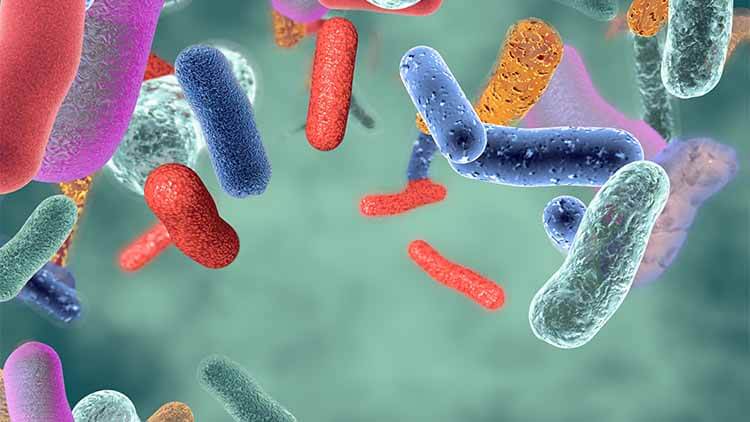
What Are Probiotics, And Can They Help With Weight Loss?
Probiotics are undoubtedly very useful. They help us maintain a healthy level of the bacteria in our gut, and can be used to help us manage the symptoms of a wide range of nutritional-related conditions.
It has also been suggested that you can use probiotics for weight loss. In this article, we’re going to explain more about what probiotics are and let you know whether or not they can actually be useful for helping you lose weight. We’ll also let you know which are the best probiotics for weight loss.
- What are probiotics?
- What’s the difference between good and bad bacteria?
- How can you use probiotics for weight loss?
- Do probiotics work for weight loss?
- What are the different types of probiotics?
What are probiotics?
If you want to learn about the use of probiotics and digestive enzymes for weight loss, you should probably first learn a bit about what these things actually are. There are lots of different probiotics out there, and not all of them function the same.

A probiotic can basically be understood by breaking down the word into its two parts: probiotic.
- Pro means something that increases or turns into something
- Biotic, meaning having to do with bacterial culture
This means that probiotics are basically substances that increase the health and efficacy of the bacterial culture in your body.
Probiotics can be used for a lot of different reasons. They can help fight diseases, nutritional deficiencies, and even mental health problems.
But wait – aren’t bacteria bad? They’re the things that cause diseases and infections, right? Well, yes, but there are lots of other types of bacteria. Many of them are actually good for us. This is where probiotics come into play.
What’s the difference between good and bad bacteria?
There are billions of different types of bacteria on the planet. In fact, there are billions of bacteria living in your body alone – but that’s neither here nor there. The point we’re trying to discuss right now is that some bacteria are good for you and some are not so good.
Ideally, the good bacteria are the ones that we have living in our gut. The bacteria in our gut are useful for a wide variety of different things.
- Having a good, healthy microbiome (the bacteria in our gut) will help to ward off symptoms of some digestive conditions and can fight things like constipation or diarrhea
- They can help maintain our mental health. Probiotics can increase cognitive health, meaning that they can make you smarter! If you’re struggling with problems digesting or absorbing nutrients, this can impede your mental health
- Probiotics can help correct nutritional deficiencies – the bacteria in your gut are needed to help digest and break down food. Without a healthy level of intestinal bacteria, you won’t be able to absorb any nutrients!
- Gut health is related to our immunity – so taking probiotics and boosting levels of good bacteria can actually improve our immune system. This means that we’re less likely to fall victim to the unpleasant effects of bad bacteria.
Unfortunately, not all bacteria are good. ‘Bad’ bacteria are typically those that are known to cause things like illnesses and infection. Bad bacteria are generally referred to as pathogens – harmful things that can cause problems in the body.
Bad bacteria can make their way into our body as a result of toxins in the environment, spoiled or otherwise tainted food, and can even take advantage of unhealthy lifestyle conditions like stress or lack of exercise.

One of the most interesting things is that living a high-strung, stress-filled life can actually cause bacteria that were previously good – or at least neutral – to turn bad and begin to multiply. This can cause a number of problems.
Fortunately, there are a few things that you can do that can help reduce the chances of contracting bad bacteria:
- Eat a healthy diet and avoid old or spoiled food. Bacteria thrive in unhealthy bodies, and if you don’t eat healthily then you won’t have a good balance of intestinal bacteria in the first place to fight off bacteria. You should also avoid sugars and refined carbohydrates.
- Make sure you get a lot of rest. Sleeping improves immunity and ensures that your digestion stays in tip-top shape.
- Take probiotics! Fermented foods and probiotic supplements can help increase the number of good bacteria present in the body while reducing the chances of bad bacteria multiplying
How can you use probiotics for weight loss?
Now that you know a bit about probiotics, it’s time to learn how you could actually use these interesting supplements to help you manage your weight. While there isn’t a whole lot of evidence in the area, there is definitely a link between the health of a person’s intestinal bacteria and their weight.
Another thing to consider is the emergence of certain types of illness and disease that can occur when your intestinal bacteria is not healthy. If you have an unhealthy amount of bacteria, you may develop dysbiosis. This is basically a fancy term describing an imbalance of bacteria in your gut.
Gut dysbiosis can actually cause people to gain more weight. This is one of the reasons that there are probiotics benefits for weight loss: by preventing gut dysbiosis, they can slow the onset of obesity.
Further studies have indicated a deeper relationship between a person’s intestinal health and their weight. It has been suggested to work both ways – negative changes in intestinal flora can cause weight gain, and weight gain can lead to changes in the gut biome.
Do probiotics work for weight loss?
Even if they may work a bit, you might wonder – are probiotics good for weight loss? That’s another story. The short answer is… not really. If you’re generally healthy and you take probiotics, you might not see much change at all. However, many people are actually unaware that they’re struggling with issues that probiotics could help with.
There are a number of things that can influence a person’s intestinal flora in addition to influencing their weight. Things like these can be destructive:
- Diets very high in fat, especially unhealthy saturated and trans-fats
- Diets that are extremely high in calories
- Various sweeteners: refined, white sugar and some artificial sweeteners
If you follow any of the above patterns then you might be at risk for developing an imbalanced gut biome in addition to becoming overweight.
In these cases, probiotics might help to restore your intestines and your overall health. This could help prevent you from gaining weight – however, the most important thing in this situation would be to correct your diet and lifestyle rather than start taking probiotics just to supplement unhealthy eating habits.
There are also some case studies that have revealed that probiotics might actually help obese people lose weight if they’re already in the process of undergoing an exercise routine or lifestyle change that could promote weight loss.
What are the different types of probiotics?
There are a huge number of probiotic supplements for weight loss. Different probiotics can have different effects and some probiotics can be more or less useful for certain things.
There are two main groups of probiotics – Lactobacillus and Bifidobacterium. Each one of these categories contains a number of different bacteria.
Lactobacillus
- Lactobacillus acidophilus
- Lactobacillus bulgaricus
- Lactobacillus fermentum
- Lactobacillus amylovorus
- Lactobacillus gasseri
- Lactobacillus rhamnosus
Bifidobacterium
- Bifidobacterium longum
- Bifidobacterium bifidum
There are lots of other different types of probiotics, but these are some of the most commonly used. Different studies have observed different reactions from certain types of probiotics.
One study, for example, checked out the influence of Lactobacillus fermentum and Lactobacillus amylovorus. The study followed people who were overweight but in good general health. They were fed yogurt that had these particular bacteria in it – they lost an extra 4% body weight compared to other study subjects.
Another interesting study followed a group of people who were drinking fermented products with Lactobacillus gasseri. The subjects lost more than 8% of their belly fat during the study, but when they stopped consuming the probiotic products, they gained the weight back.
It’s important to keep in mind that the current body of evidence can’t be considered complete, since only a handful of studies have been done in the area. If you really want to know what’s going to work and what isn’t, you can see what other people have said about these supplements.
The best probiotics for weight loss reviews can be found online on weight loss forums or on community websites like Reddit. Anecdotal evidence may not be empirical, but people have nothing to gain by sharing their own experiences with supplements like these. It can’t hurt to hear other people’s personal stories regarding the use of probiotics.
In Conclusion
There are lots of probiotics out there, and recent research has indicated that some probiotics could be useful for helping with weight loss.
Hopefully, this article has cleared up some questions that you may have had in this regard. Good luck and happy weight loss!




